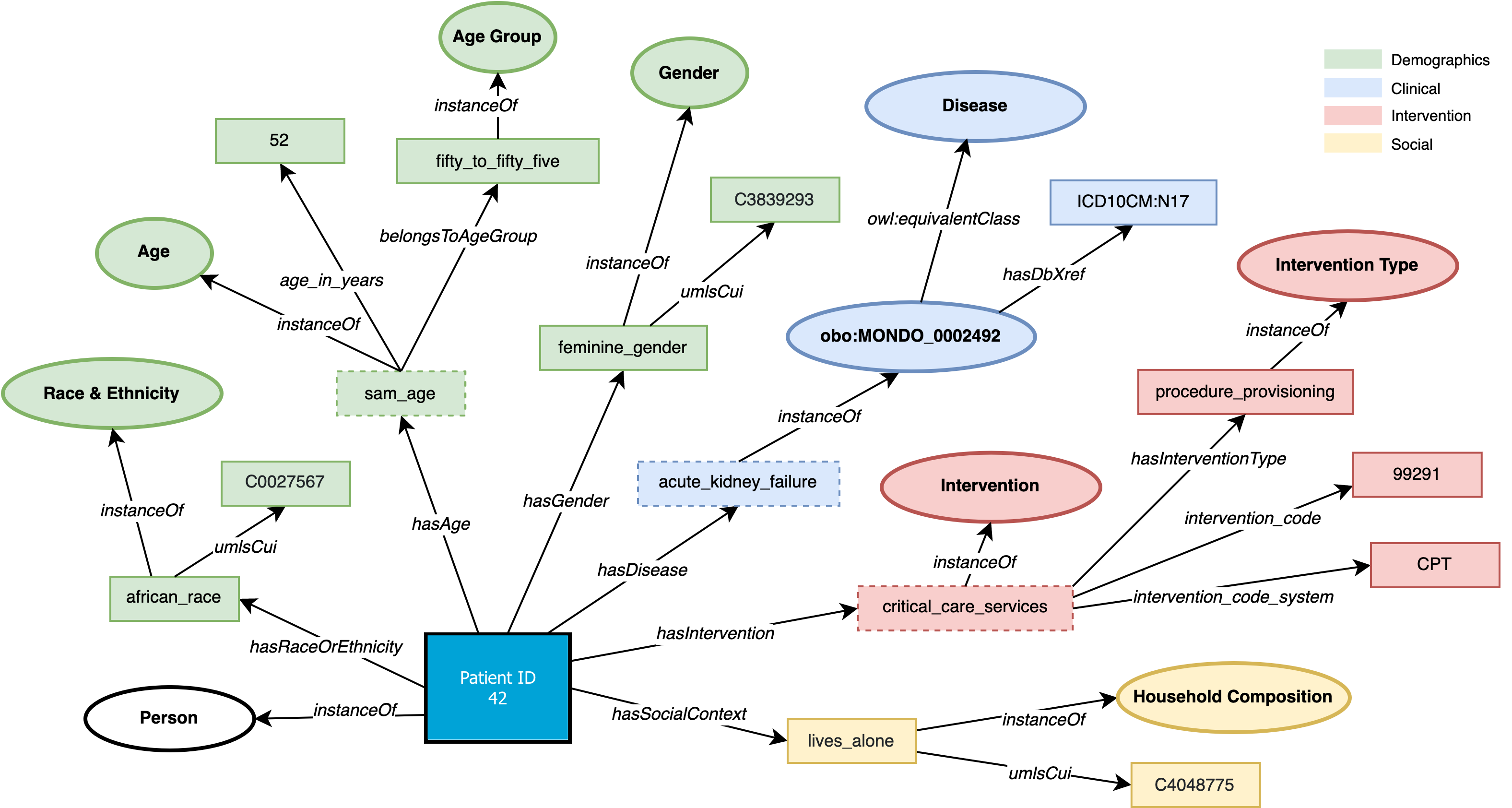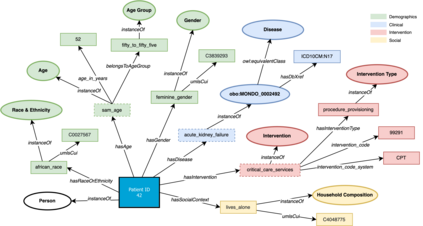Knowledge graphs (KGs) are a popular way to organise information based on ontologies or schemas and have been used across a variety of scenarios from search to recommendation. Despite advances in KGs, representing knowledge remains a non-trivial task across industries and it is especially challenging in the biomedical and healthcare domains due to complex interdependent relations between entities, heterogeneity, lack of standardization, and sparseness of data. KGs are used to discover diagnoses or prioritize genes relevant to disease, but they often rely on schemas that are not centred around a node or entity of interest, such as a person. Entity-centric KGs are relatively unexplored but hold promise in representing important facets connected to a central node and unlocking downstream tasks beyond graph traversal and reasoning, such as generating graph embeddings and training graph neural networks for a wide range of predictive tasks. This paper presents an end-to-end representation learning framework to extract entity-centric KGs from structured and unstructured data. We introduce a star-shaped ontology to represent the multiple facets of a person and use it to guide KG creation. Compact representations of the graphs are created leveraging graph neural networks and experiments are conducted using different levels of heterogeneity or explicitness. A readmission prediction task is used to evaluate the results of the proposed framework, showing a stable system, robust to missing data, that outperforms a range of baseline machine learning classifiers. We highlight that this approach has several potential applications across domains and is open-sourced. Lastly, we discuss lessons learned, challenges, and next steps for the adoption of the framework in practice.
翻译:暂无翻译





